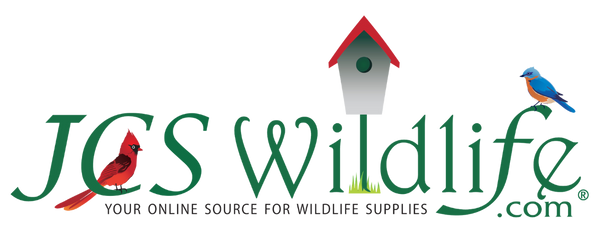Over the years we have provided a lot of tips and tricks so that you can get the most out of your bird feeding experience. Here we have gathered all of that information in one 4-part series. This information is helpful for both the seasoned birder and the beginner, and takes you through the feeding process from start to finish.
The most important part of being a responsible birder is to properly maintain your feeder to prevent injury and the spread of disease. This article provides some helpful tips for caring for your feeder.
- Replace any damaged parts of your feeder. Cracks in the feeding tube or broken perches can be harmful to birds. You may contact the feeder’s manufacturer to inquire if they offer replacement parts. Reputable sellers that specialize in birding supplies may be able to help you locate the correct manufacturer as well.
- Clean your feeder regularly. As we stated in our previous class, it is important to clean your feeder on a regular basis, even if the feeder is not being used often. We recommend using natural cleaners (available here) instead of chemical cleaners with harsh fumes. If more thorough cleaning is required, you may use a diluted bleach solution by mixing 9 parts water with 1 part bleach. Be sure to rinse and dry thoroughly. Most feeders cannot go through the dishwasher.
- Keep pests away. Attach baffles to poles to keep squirrels, raccoons, or chipmunks off feeders. You can also find accessories for some Hummingbird feeders to keep crawling or flying insects out. However, it is important to note that not all accessories will work with all feeders. Compare your feeder with the accessory before making a purchase. DO NOT use oil or petroleum-based products on any feeder, baffle, or bird feeder pole. This can cause harm to birds and wildlife. Keeping the area around the feeder clean will help deter pests and mold as well.
- Add additional feeders. It is easy for a popular feeder to become a little too popular. If you notice that your feeder is becoming overcrowded, consider adding more feeders as well as swing perches for birds waiting their turn.
This marks the end of our first masterclass series and National Bird Feeding Month 2018. These "classes" are available to anyone at anytime, free of charge. At JCs Wildlife, we feel it is our obligation and our pleasure to share the knowledge we have gained working with backyard wildlife. We hope that after this masterclass you feel more confident and empowered as a birder.



